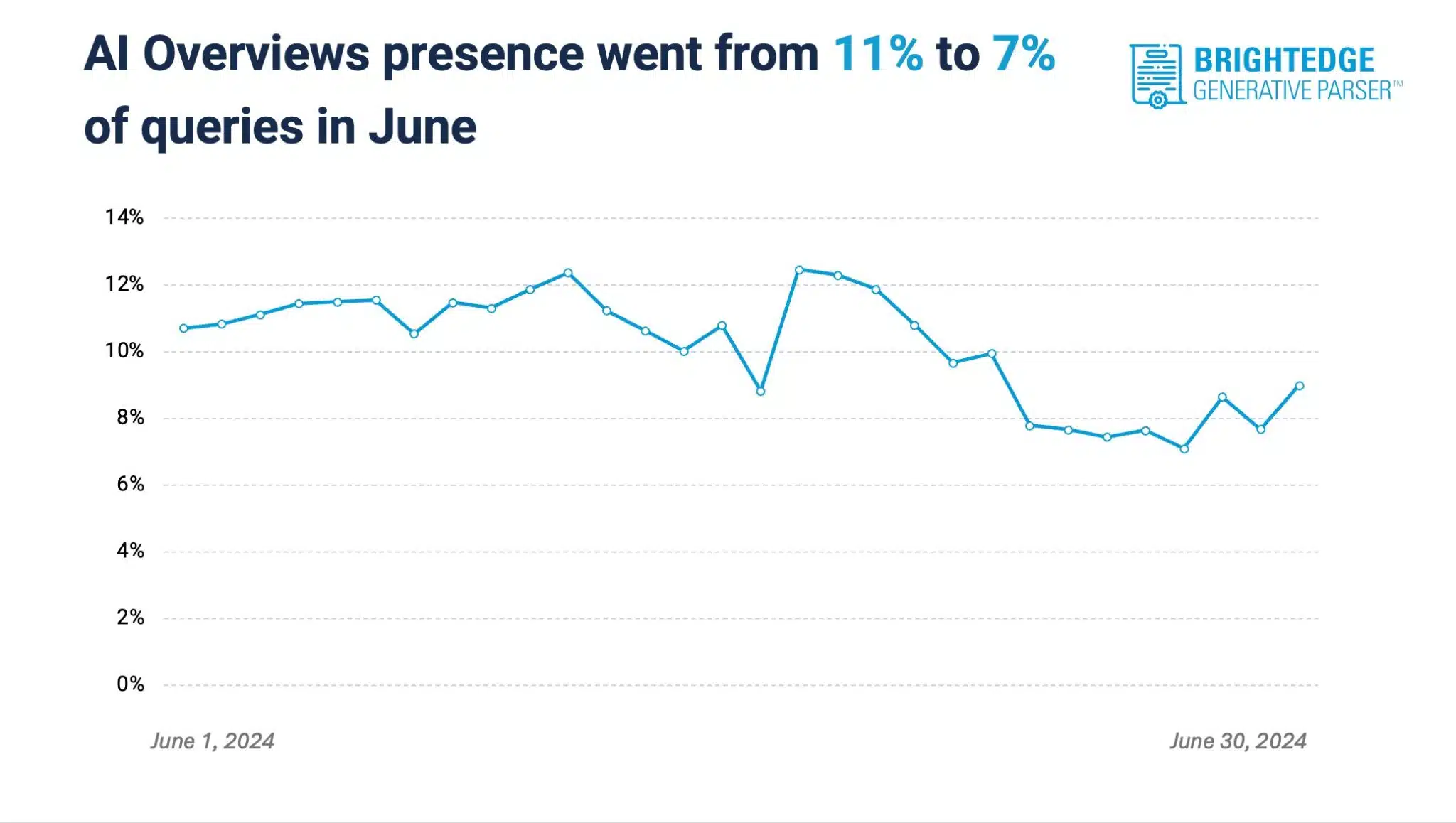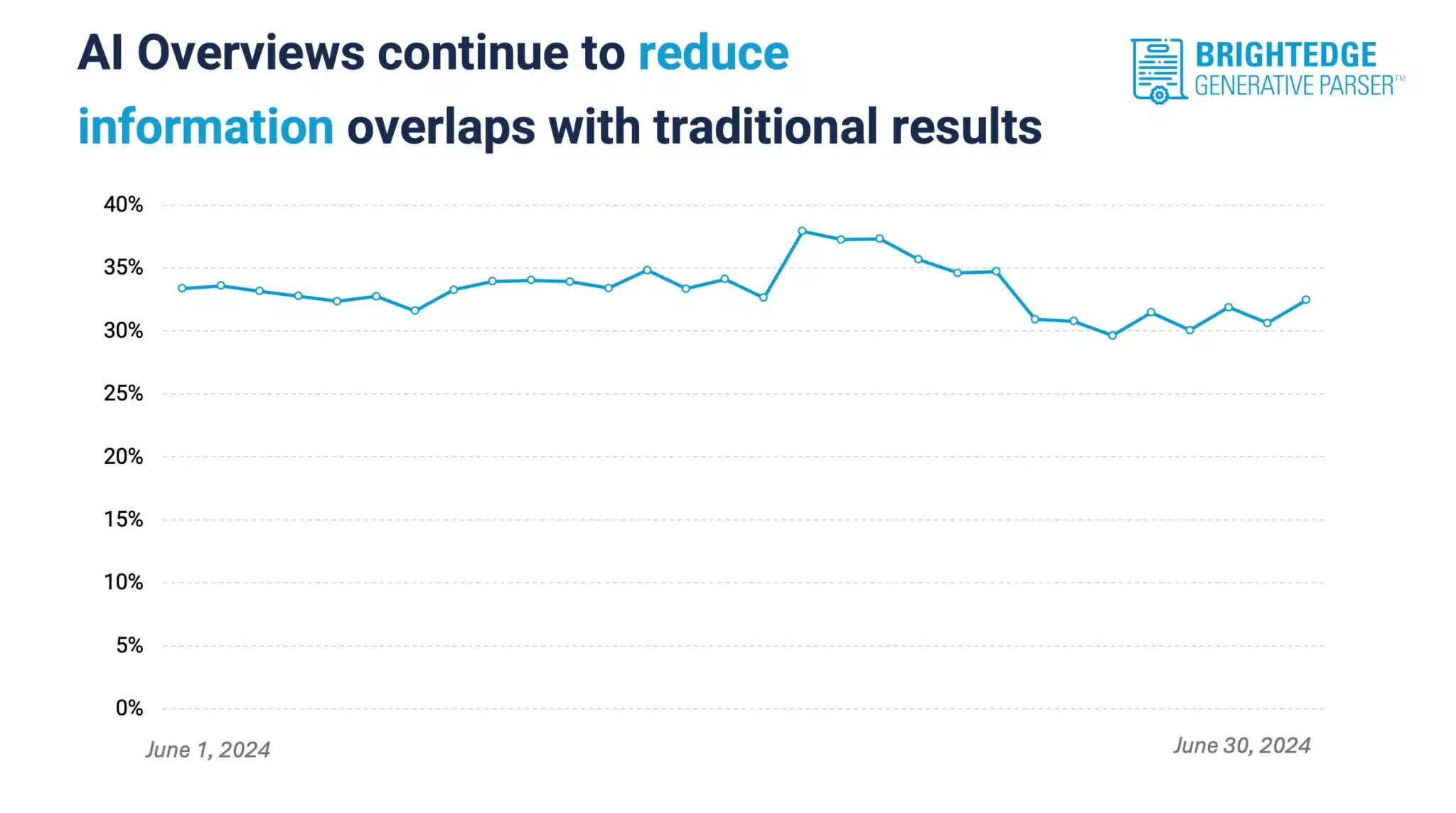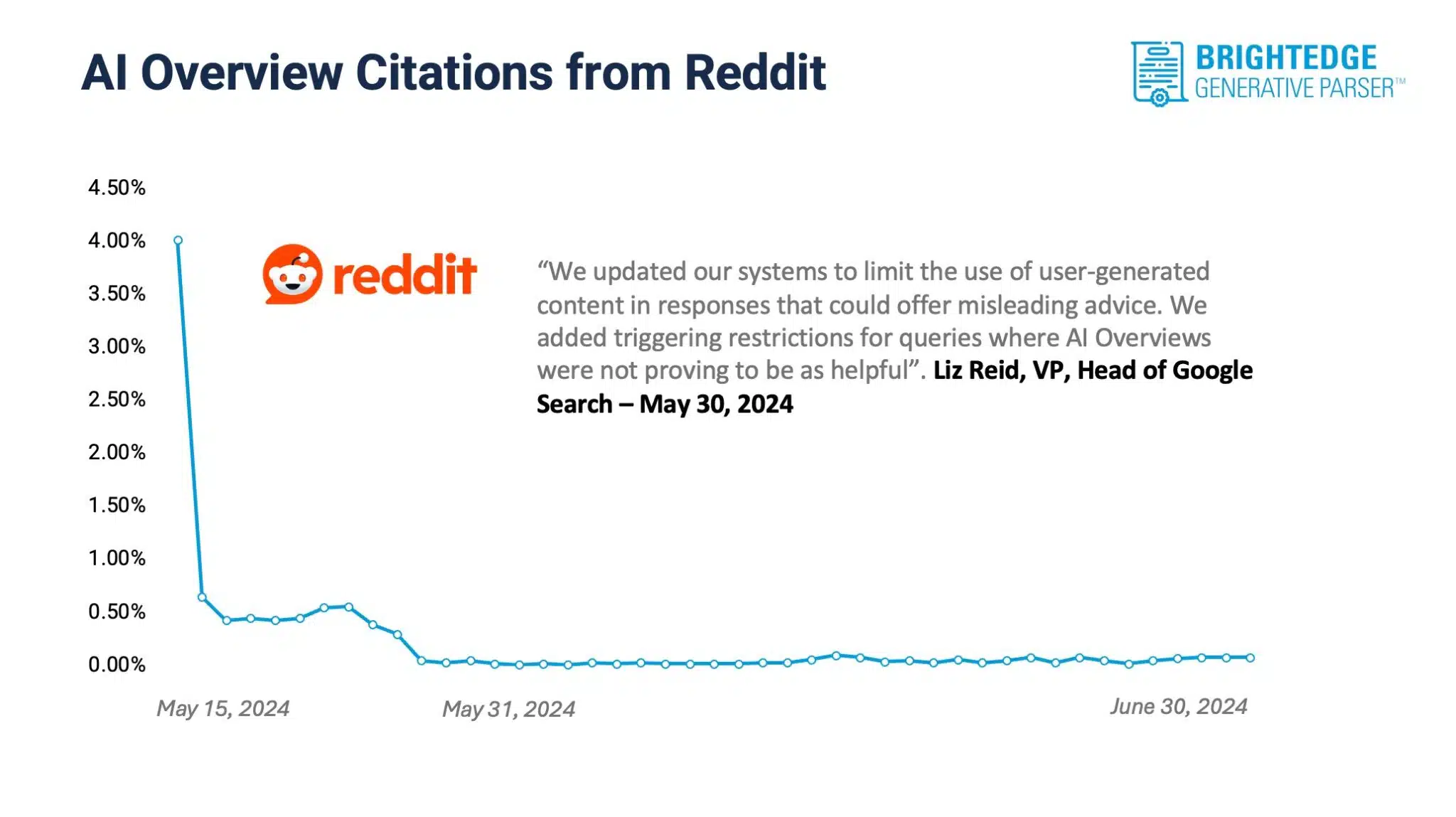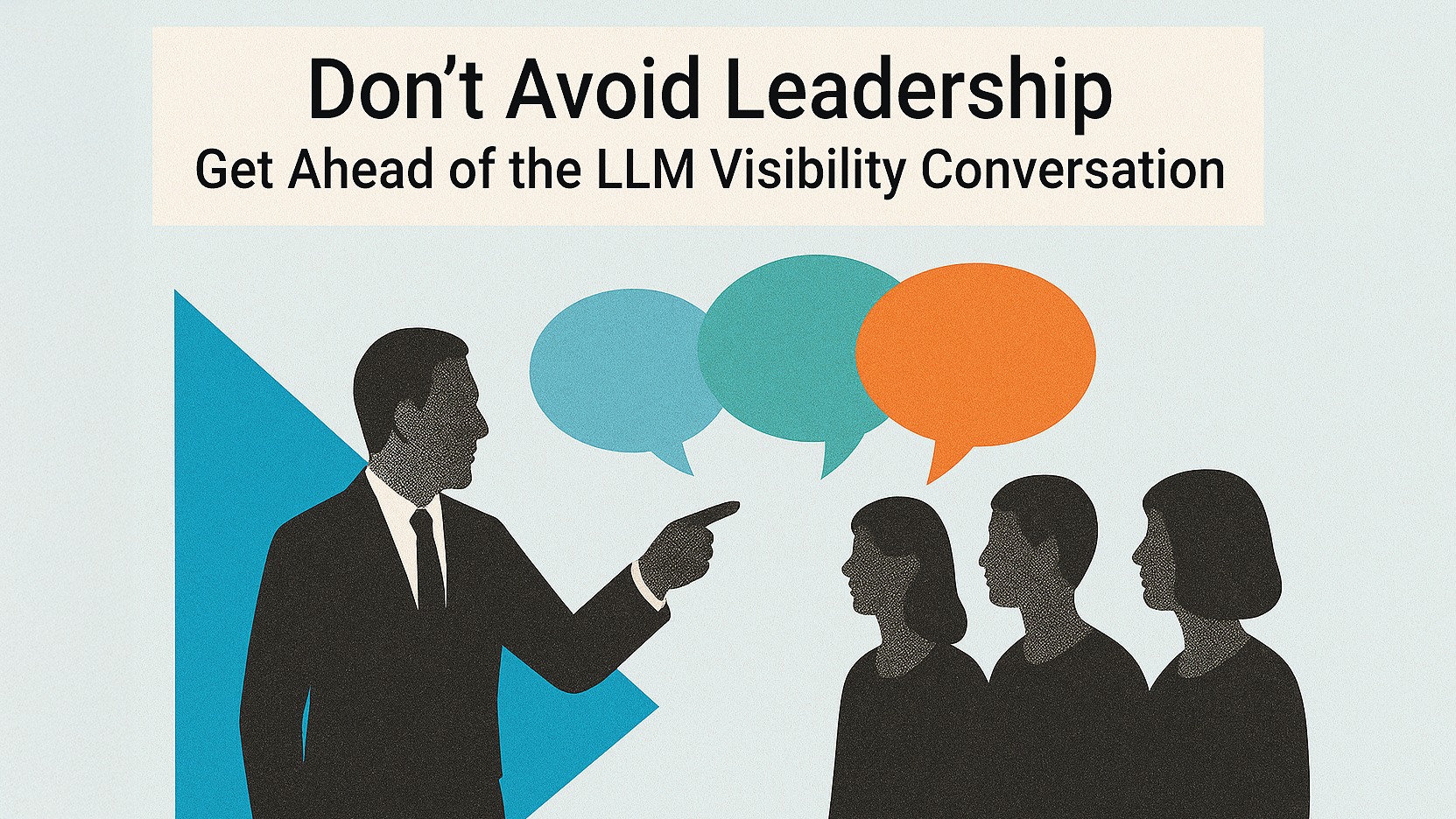Google AI Overviews only show for 7% of queries, a new low
Some of the biggest visibility drops were on education, entertainment and ecommerce queries. Reddit and Quora are almost never cited anymore.
Google’s AI Overviews now appear less than 7% of the time. This is one of 10 noteworthy findings from a new analysis of AI Overviews.
- This trend of less visibility for AI-generated answers started in mid-April, when the number of Google Search results without SGE jumped to 65%, up from 25%.
- Google then announced the rollout of AI Overviews in the U.S. at Google I/O in May, and the trend continued. AI Overviews only showed for 15% of queries.
- We next saw multiple examples of incorrect and dangerous AI-generated answers, such as Google suggesting people drink urine and eat rocks. Google promised to improve AI Overviews.
This data was shared with Search Engine Land by enterprise SEO platform BrightEdge and its BrightEdge Generative Parser, which has been tracking and monitoring AI Overviews (and formerly Search Generative Experience) since late last year.
AI Overviews drop. Google continued to reduce the presence of AI Overviews in June – dropping from 11% to 7% of queries, according to BrightEdge. However, there was also a slight increase in AI Overviews in mid-June before the big drop.
Here’s a screenshot showing the drop:

Education, entertainment, ecommerce. The presence of AI Overviews remained stable in many industries – but these three were not among them.
- For education queries, AI Overviews dropped from 26% to 13%.
- For entertainment queries, AI Overviews fell from 14% to nearly 0%.
- For ecommerce queries, AI Overviews decreased from 26% to 9%.
AI Overviews real estate shrinks. AI Overviews take up less pixel space on top of Google’s search results than ever. They are now 13% smaller, on average, according to BrightEdge.
Less duplication in AI, Classic search results. Google is less frequently citing the same sources in AI Overviews that appear in Classic Search. This is because Google is leaning into its concept of “Let Google do the searching for you” where Google brings in information that anticipates relevant follow-up queries.

Search query patterns. Search intent plays a role in whether AI Overviews appear:
- Increases: “Best,” (+50%) “what is,” (+20%), “how to” (+15%) and “symptoms of” (+12%) queries are more often to trigger an AI Overviews
- Decreases: “Vs” (-20%), brand-specific (-15%), general product (-14%) and lifestyle-related (-12%) queries trigger AI Overviews less often.
UGC loses visibility in AI Overviews. Reddit and Quora lost a staggering number of AI Overviews citations – 85.71% and 99.69%, respectively, in June. Google must have recognized that these popular user-generated sites are unreliable sources of trustworthy information (at least for AI Overviews).

Less comparisons. Google cut in half the number of product comparison tables it showed in AI Overviews. This decline started June 1.
Less product viewers and carousels. Product viewers and carousels are two AI Overviews features that appear “significantly less” often in AI Overviews, BrightEdge reported. This decrease also started in early June.
Less lists. Ordered and unordered lists, which at one time were the most common SGE module, now appear “less often,” according to BrightEdge. This could be related to Google attempting to reduce the amount of space AI Overviews occupy.
More financial warnings. Google increased the number of financial warnings by 10% in June. Google already had a similar warning for healthcare queries.
Why we care. AI Overviews continue to be an area of extreme interest for SEOs, publishers and content creators because the search feature upends the traditional model of Classic Search. Since the arrival of SGE and AI Overviews, there have been huge concerns about Google making it harder or near impossible for some websites to get organic search traffic.
Even though AI Overviews are less visible overall, we don’t expect AI Overviews to go away. Google has told us it will continue to evolve in this direction and that it is resulting in more searches. Though Google has yet to share any data to back up this vague claim.
Search Engine Land is owned by Semrush. We remain committed to providing high-quality coverage of marketing topics. Unless otherwise noted, this page’s content was written by either an employee or a paid contractor of Semrush Inc.


